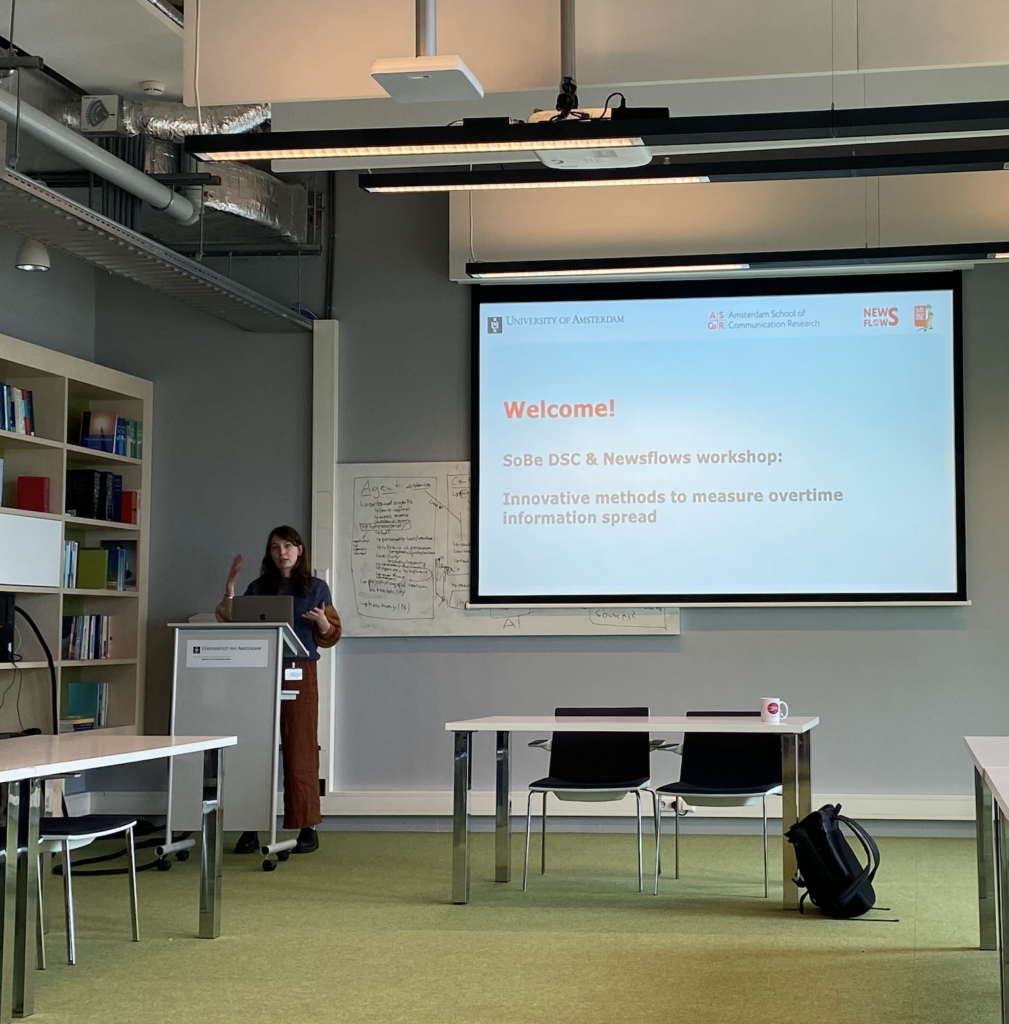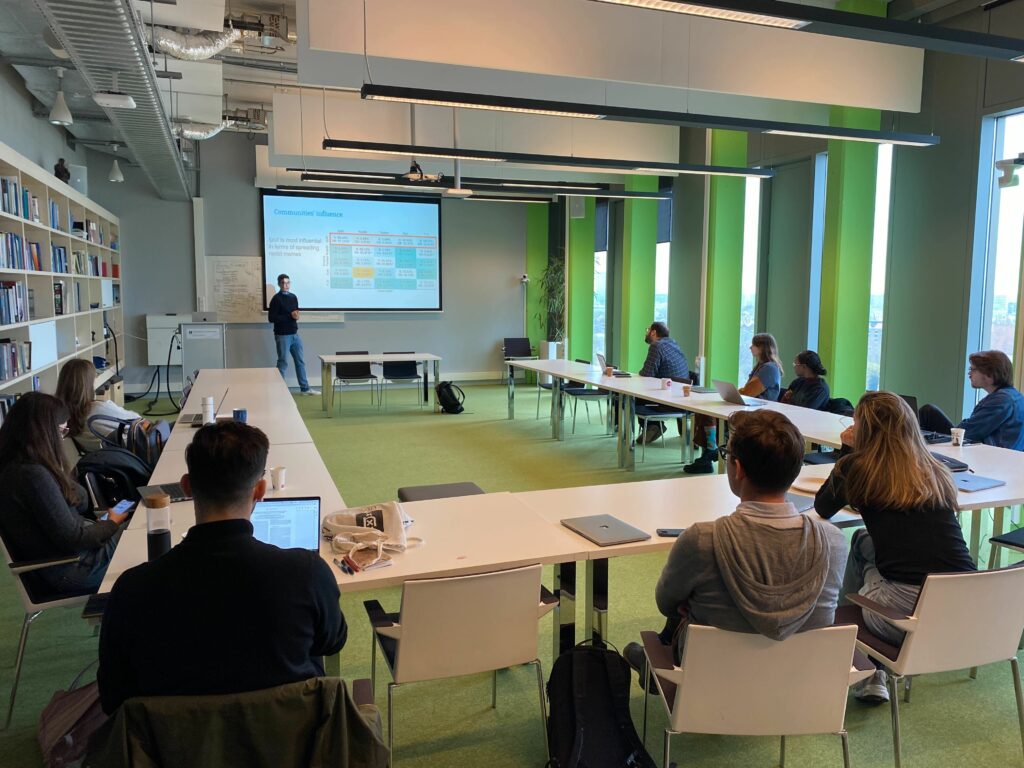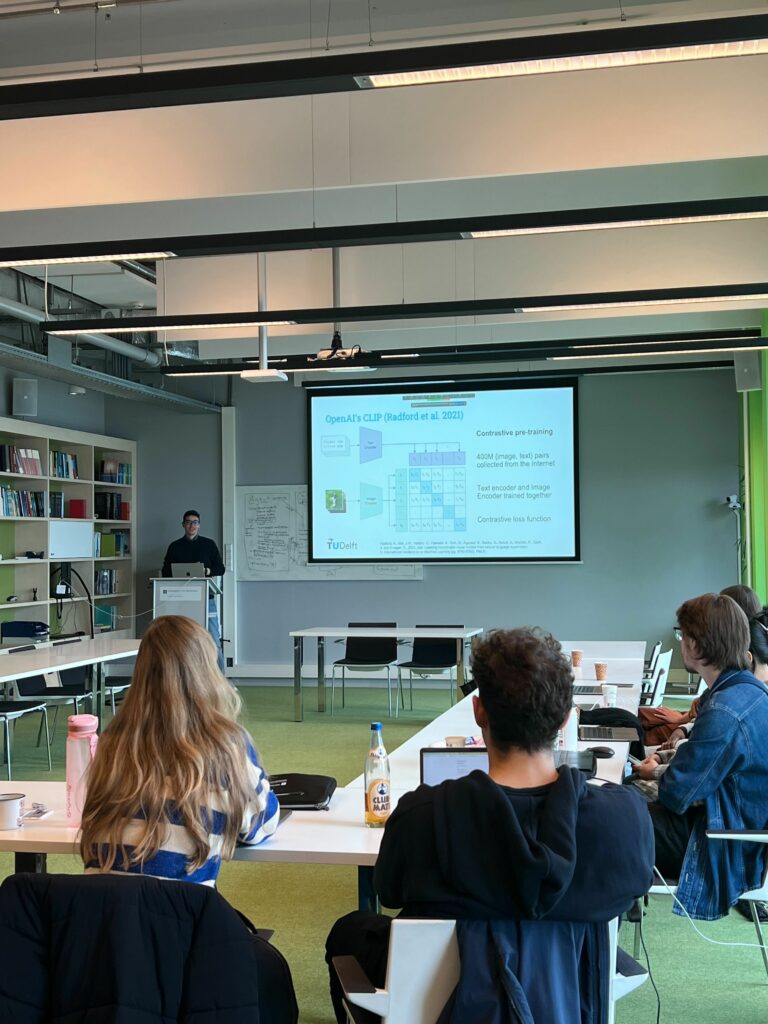


On April 21, the Newsflows team organized a full day workshop on innovative methods to trace information flows. In this workshop, Dr. Savvas Zannettou (TU Delft, Max Planck Institute for Informatics, International Data-driven Research for Advanced Modeling and Analysis Lab) presented two innovative methods: (1) Hawkes processes to model complex influence dynamics, (2) Analyzing multimodal data using contrastive learning. The event took place in Roeterseiland Campus, and was hosted by the Newsflows project & funded by the Social and Behavioural Data Science Centre.
The workshop aimed to bring together scholars from different disciplines to foster collaboration and synergies in tracing information flows across platforms, actors, and entities. Participants sought to learn about novel methods and share their own approaches and experiences to address common challenges.
During the first part of the workshop, Dr. Zannettou discussed the application of Hawkes processes to study the spread of news, memes, and hate speech across web communities. Hawkes processes are stochastic processes that model the arrival times of events, allowing researchers to identify patterns of influence within a web community. This information can be used to detect influential users and communities and predict future events, providing insights into social behavior and enabling targeted interventions. In addition, Mónika, our team member, briefly presented her recent study, which is a collaboration with Dr. Zannettou, showcasing the application of Hawkes processes to trace topic-based information flows across various platforms such as 4chan, Reddit, Twitter, and newspapers.
In the second part, Dr. Zannettou focused on analyzing multimodal data using contrastive learning. This approach employs AI models to assess content similarity across text and images, enabling the extraction of semantic relationships regardless of modality. These methods contribute to a more comprehensive understanding of online information spread and patterns of influence, regardless of the type of content.
Overall, the workshop was a great success. We had excellent discussions while learning about each others research projects and methods. We are looking forward to continuing this interdisciplinary dialogue between social scientists and computer scientists in the future.